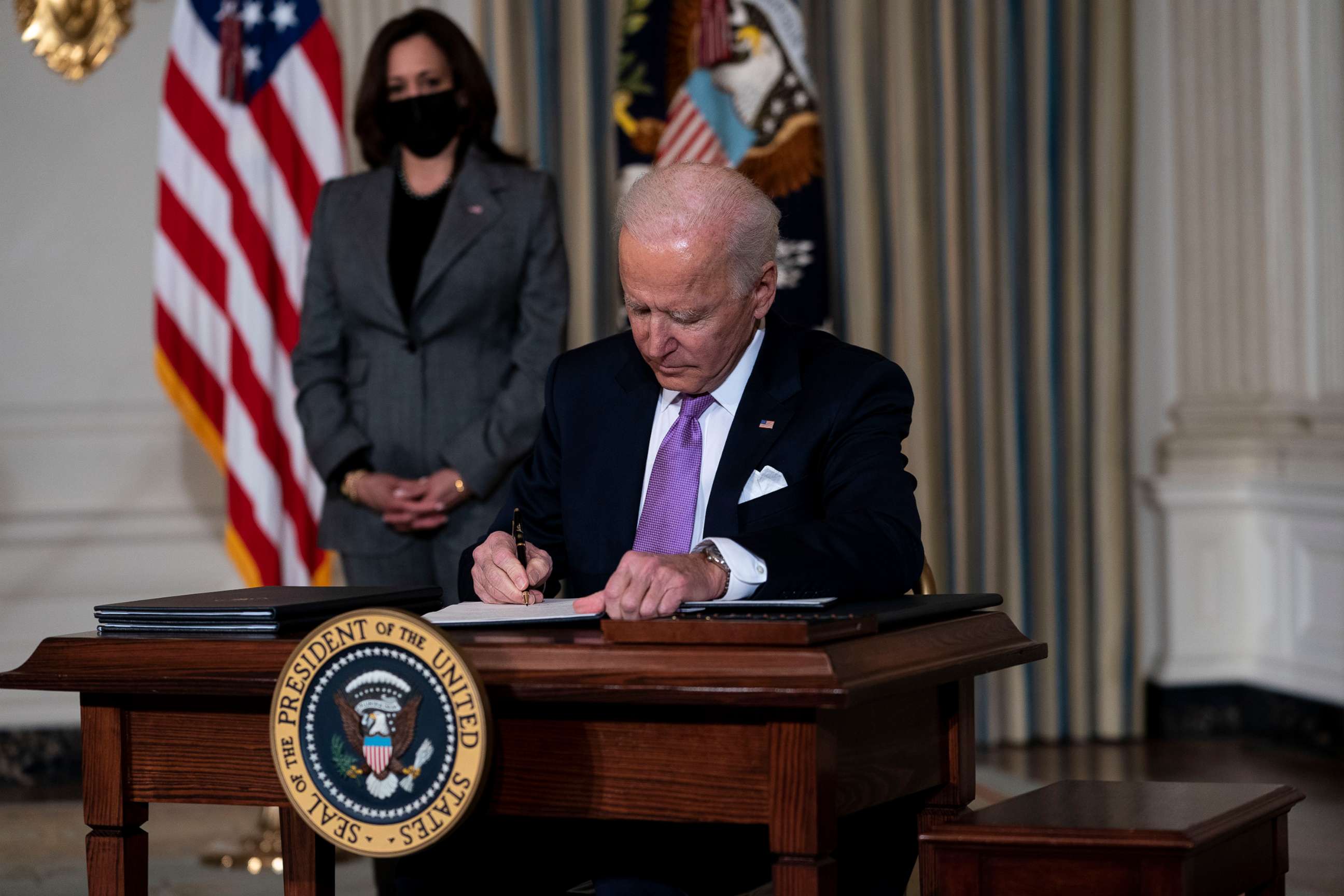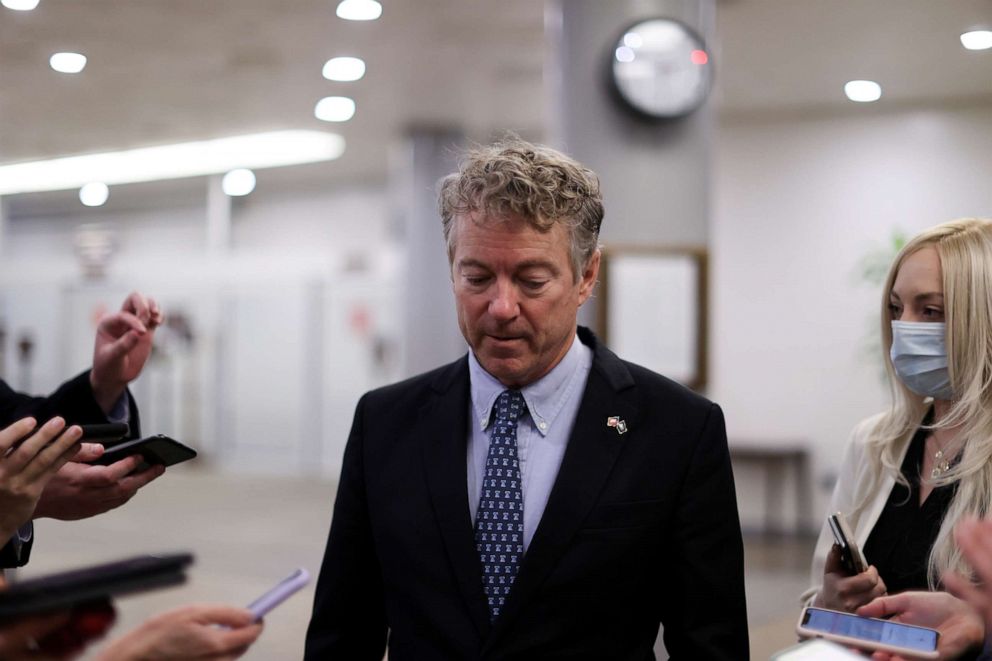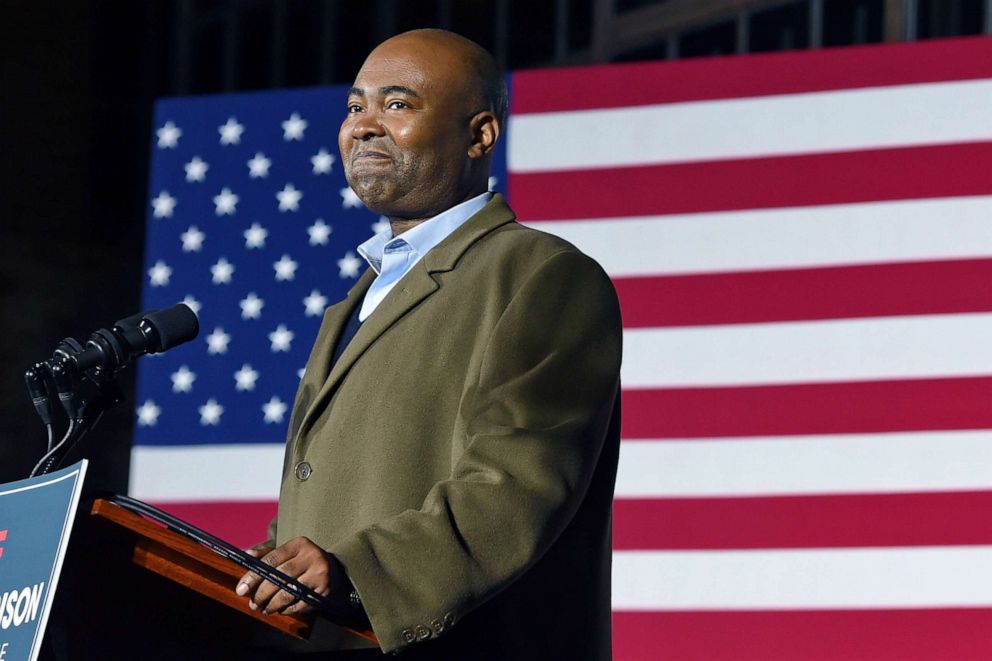Clock running on Biden bid for bipartisanship: The Note
There are small deals to cut, but perhaps not all that much time to cut them.
The TAKE with Rick Klein
The long national civics lesson is getting some new chapters.
Next up is budget reconciliation, which matters as a means to pass things with a relatively small number of members of the minority party in the Senate. It's not President Joe Biden's first choice, for a range of obvious and somewhat less apparent reasons, many of which he articulated directly just one week ago in his inaugural address.
But the clock on bipartisanship is already ticking down. Senate Majority Leader Chuck Schumer is saying a vote on a budget resolution could come as early as next week -- before the Senate impeachment trial, and conceivably before any standalone COVID-19 relief bills make their way out of the legislative branch.

It may just be a backup option, yet it's a potentially fateful one. The Biden White House has been seeking to teach a different civics class, pointing out just about daily that negotiations with lawmakers in both parties is the natural order of Washington.
Yet the president has been pursuing dual tracks from the start. His blizzard of executive orders are not limited to the coronavirus, of course, with a wide swath of priorities around immigration, climate change and racial and gender equity getting unilateral presidential attention.
There are small deals to cut -- think along the lines of the $2,000 COVID-19 impact payments -- but perhaps not all that much time to cut them. Tuesday's vote on impeachment's constitutionality was a reminder that party lines are easy to revert to.
Biden came to office with a sense of urgency around overlapping crises. Political deadlines are starting to pile up as well.
The RUNDOWN with Alisa Wiersema
With the second impeachment trial of Donald Trump slated to formally begin in two weeks, the leadup already feels like a theatrical cliffhanger after Sen. Rand Paul forced a procedural vote on the constitutionality of the impeachment of a former president on Tuesday.
Five of the Kentucky senator's Republican colleagues -- Sens. Mitt Romney, Ben Sasse, Pat Toomey, Susan Collins and Lisa Murkowski -- voted with Democrats to kill Paul's effort to dismiss the upcoming impeachment trial as unconstitutional. Although their votes helped render Paul's motion a failure, the vast majority of the Republican conference still voted with their colleague, which he considers a successful sign of things to come.

"We're excited about it. It's one of the few times in Washington where loss is actually a victory," Paul told reporters after the vote. "And 45 votes means that the impeachment trial is dead on arrival."
If past becomes prologue and the final vote to convict Trump falls along the same 55-45 breakdown, the Senate will be 12 votes short of the necessary amount to convict the former president and bar him from holding office in the future. But while it may be too early to predict how the final votes will actually pan out, one thing's for sure -- the debate over constitutionality is just beginning.
"It makes no sense whatsoever that the president or any other official could commit a heinous crime against our country and then could evade Congress' impeachment power," Schumer said in a speech preceding Tuesday's vote.
"If senators want this issue debated it can and will be argued during trial," he added.
The TIP with Kendall Karson
Democrats are already promising a 2022 strategy that looks a little more like Georgia and a little less like Maine, or Iowa, or North Carolina. Seeking to build on their history-defying wins in the Peach State, Democrats are aiming to set a new playbook ahead of next year's midterms, one in which they can build on their razor-thin majorities in the Senate and the House.
It's a model that looks beyond traditional battleground territory, as Jaime Harrison, the new chair of the Democratic National Committee, put it. Following the Georgia runoffs, in which decades of on-the-ground organizing mobilized a coalition of voters, particularly suburban and African American voters, Harrison told NPR he hopes Democrats are competitive in areas where the party has long been shunned: "History is not on our side. But this is the thing that I've learned just this past election cycle: You can make your own history."

But it's not just party leaders leaning on a more aggressive grassroots strategy moving forward. North Carolina state Sen. Jeff Jackson, a Democrat who announced a bid for outgoing Republican Sen. Richard Burr's seat on Tuesday, is openly pledging to run on a similar approach -- a "100-county campaign" -- even if it is at odds with the advice he reportedly received last year from the Senate's top Democrat.
When he first considered a Senate bid against Republican Sen. Thom Tillis, Jackson pitched his grassroots-heavy strategy to Schumer, but was told "wrong answer" by the Democratic leader, according to the National Review, which obtained audio of Jackson recounting the meeting. He didn't run that year, and the 2020 Democratic nominee -- former state Sen. Cal Cunningham, who like Jackson served in the state legislature and military -- ultimately fell short by about 100,000 votes. Now, Jackson is adamantly betting on his strategy, saying to voters in his launch video, "You should have higher expectations for this office than you currently do."
THE PLAYLIST
ABC News' "Start Here" podcast. Wednesday morning's episode features ABC News Senior National correspondent Terry Moran, who explains the state of play on impeachment as senators are sworn in. ABC News Chief White House correspondent Cecilia Vega examines President Joe Biden's execution action regarding private prisons and how it relates to immigration. And ABC News' Anne Flaherty has more on how Biden plans to rectify vaccine shortages reported across the country. http://apple.co/2HPocUL
ABC News' "Powerhouse Politics" podcast. Rep. Tom Reed, R-N.Y, chairman of the Problem Solvers Caucus -- the bipartisan group of lawmakers that introduced a compromise COVID-19 relief proposal last month -- joins ABC News Political Director Rick Klein and Chief Washington Correspondent Jonathan Karl on the podcast. https://bit.ly/2M78Ygu
WHAT YOU NEED TO KNOW TODAY
Download the ABC News app and select "The Note" as an item of interest to receive the day's sharpest political analysis.
The Note is a daily ABC News feature that highlights the day's top stories in politics. Please check back tomorrow for the latest.



